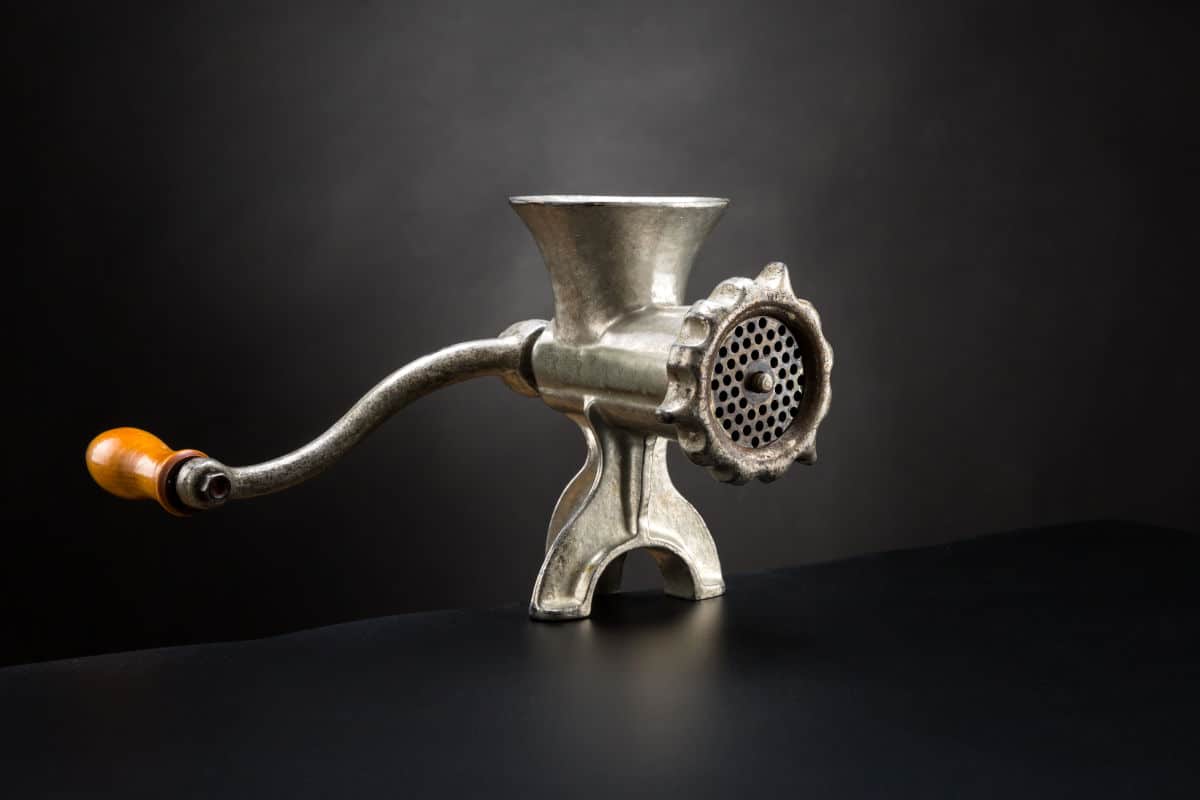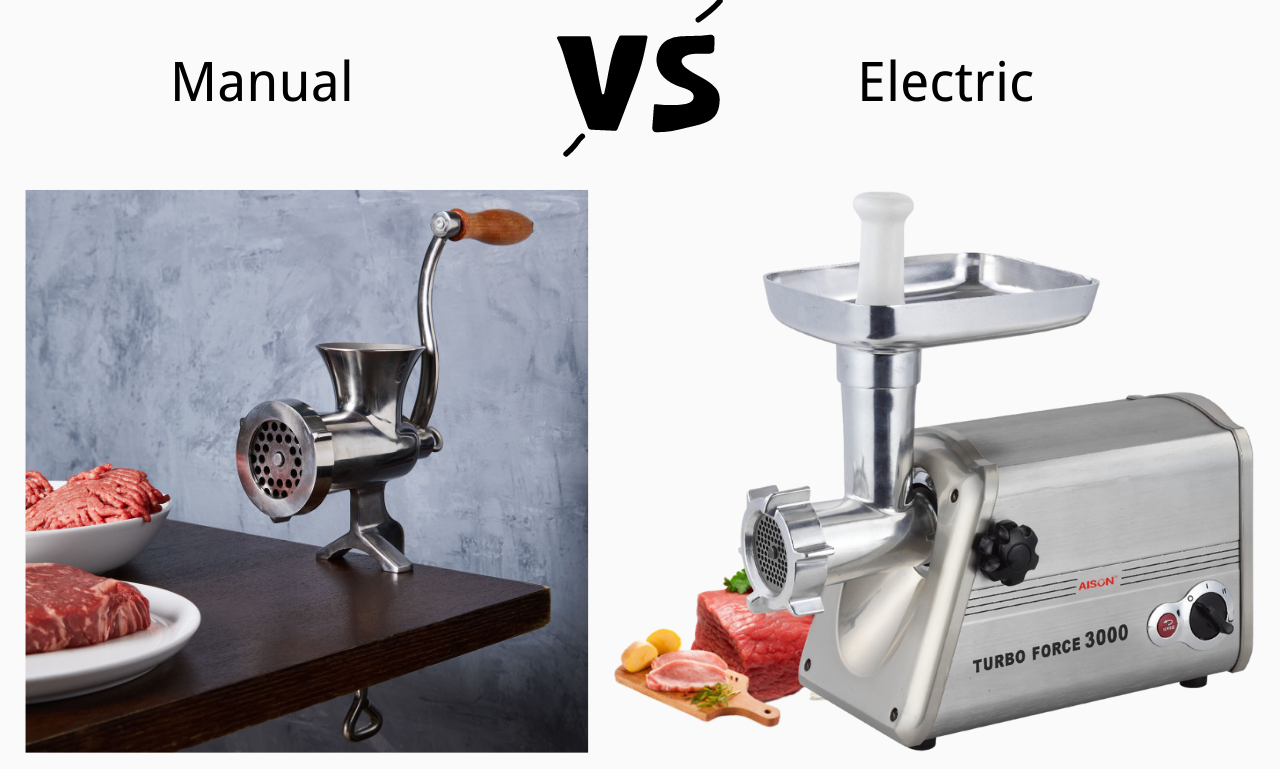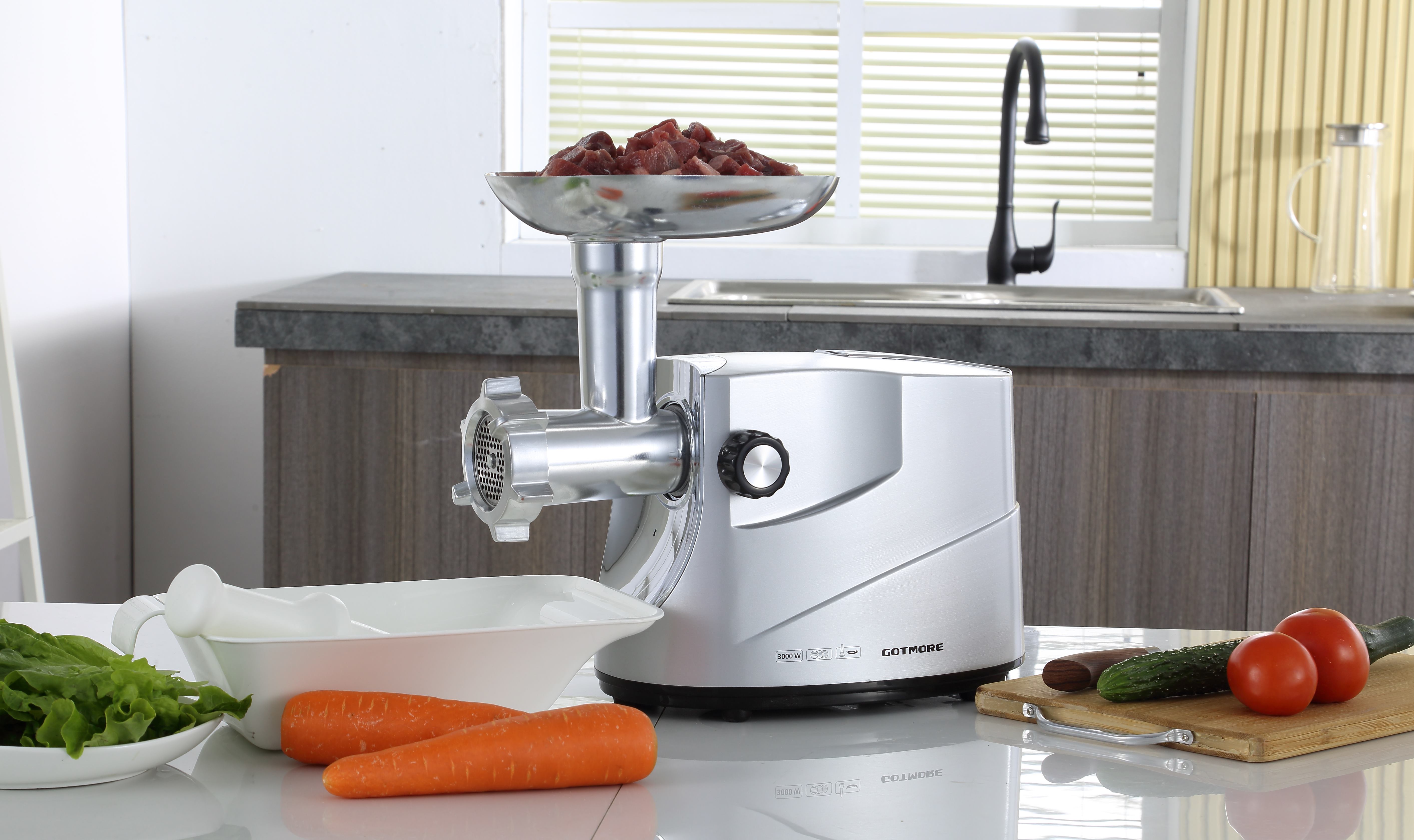The Battle of the Meat Grinders: Manual vs Electric Showdown
2023-04-25When it comes to grinding meat at home, there are two main types of meat grinders to choose from: manual and electric. Both types have their pros and cons, and deciding which one to buy can be a challenge. That's why we've put together this comprehensive guide to help you navigate "The Battle of the Grinders: Manual vs Electric Showdown". We'll be comparing and contrasting the features of each type of meat grinder, including grinding capacity, durability and maintenance, price, ease of use, versatility, grind consistency, noise level, and safety features. By the end of this post, you'll have a much clearer idea of which type of meat grinder is best suited for your needs and budget. So let's get started!
Wholesale Electric Meat Grinder Sausage Maker MG-300M
The Pros and Cons of Manual Meat Grinders:
Manual meat grinders are hand-cranked and require physical effort to grind meat. However, they are generally smaller, more affordable, and easier to clean than electric models. They are also great for grinding small batches of meat and are generally more portable than electric grinders. The downside is that manual grinders can be time-consuming and require more effort to use. They may also have limited grinding capacity and may not be suitable for grinding tougher cuts of meat.

The Advantages and Disadvantages of Electric Meat Grinders:
Electric meat grinders are powered by electricity and are typically larger and more expensive than manual models. They can grind meat faster and with less physical effort, making them ideal for large batches or tougher cuts of meat. They also tend to have a wider range of attachments and accessories available, such as sausage stuffing tubes and vegetable shredders. However, electric grinders can be more complex to operate and maintain. They may also be noisier and more difficult to clean than manual models.
1200W High Efficiency Electric Multi-function Meat Grinder MG-300HM
Grinding Capacity: How Much Meat Can Your Grinder Handle?
The grinding capacity of a meat grinder refers to the amount of meat it can process at one time. Manual grinders are typically smaller and can handle smaller amounts of meat, while electric grinders can handle larger quantities. However, the exact grinding capacity can vary depending on the model and the power of the motor. It's important to consider your needs when choosing a grinder, as you don't want to end up with a machine that is too small or too large for your needs.
Durability and Maintenance: Which Type of Meat Grinder Lasts Longer?
The durability and maintenance requirements of a meat grinder can vary greatly depending on the model and brand. Generally speaking, manual grinders are simpler in design and have fewer moving parts, so they may last longer and require less maintenance than electric models. However, some electric models are built to last and come with warranties or guarantees to ensure their longevity. It's important to consider the materials used in the construction of the grinder and any maintenance requirements before making your purchase.
Price Comparison: Are Manual Meat Grinders Cheaper Than Electric Ones?
Manual meat grinders are generally less expensive than electric models, although this can vary depending on the brand and model. Manual grinders can cost as little as $20, while electric grinders can range from $50 to $500 or more. It's important to consider your budget and needs when making your purchase, as a more expensive model may be worth the investment if it has features that you need or will use frequently.
Ease of Use: Which Type of Meat Grinder is More User-Friendly?
The ease of use of a meat grinder can vary depending on the model and type. Manual grinders can be simple to operate, but require more physical effort than electric models. Electric grinders may have more complex controls, but can be operated with the push of a button. It's important to consider your comfort level with the type of grinder you choose, as well as any physical limitations or requirements you may have.
Versatility: Which Type of Meat Grinder Can Do More Than Just Grind Meat?
Some meat grinders are designed to do more than just grind meat. Manual grinders may come with attachments for making sausage or pasta, while electric grinders may have additional attachments for shredding or slicing vegetables. It's important to consider what additional features you may need before making your purchase, as some models may be more versatile than others.

Grind Consistency: Is One Type of Meat Grinder More Consistent Than the Other?
When it comes to grind consistency, electric meat grinders tend to offer a more consistent grind than manual meat grinders. This is because electric grinders are designed to use more force and power, allowing them to grind meat more finely and consistently. Manual grinders, on the other hand, require more effort and may not always produce an even grind, especially if the user is not experienced in using them. For those who prioritize grind consistency, an electric meat grinder may be the better choice.
Noise Level: How Loud are Manual and Electric Meat Grinders?
When using a meat grinder, it is important to take safety precautions to prevent injury or accidents. Some safety features that are commonly found on meat grinders include a safety switch, which prevents the grinder from turning on accidentally, and a locking mechanism, which keeps the grinder securely in place while in use. It is also important to handle the sharp blades and other parts with care and to keep your fingers and other body parts away from the grinding mechanism. When using an electric grinder, be sure to keep the cord away from water and other liquids to prevent electrical shock. Overall, it is important to read the instruction manual and follow all safety guidelines when using a meat grinder.
Safety Features: Which Type of Meat Grinder is Safer to Use in the Kitchen?
Manual meat grinders typically have fewer safety features than their electric counterparts. However, they are generally considered to be safer because they don't have a motor that could malfunction and cause injuries. Manual meat grinders are also easier to clean, which reduces the risk of cross-contamination.
On the other hand, electric meat grinders have several safety features that make them safer to use. Many models have a built-in circuit breaker that prevents the motor from overheating and causing a fire. Some electric meat grinders also come with a reverse function that prevents the machine from jamming, which reduces the risk of injuries from trying to clear the jam.
Ultimately, the safety of a meat grinder depends on the user. Both manual and electric meat grinders require careful handling and attention to safety precautions to prevent injuries in the kitchen. It's important to read the manufacturer's instructions and follow safety guidelines when using a meat grinder.
In conclusion, the choice between a manual and electric meat grinder ultimately comes down to personal preference and specific needs. Manual meat grinders are great for those who want a simple, inexpensive, and portable option that allows for greater control over the meat grinding process. Electric meat grinders, on the other hand, are more convenient and efficient, making them a great choice for those who need to grind large amounts of meat quickly. When making your decision, consider the factors we discussed, such as size, power, versatility, ease of use, cleaning and maintenance, and price.



